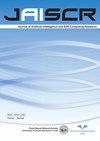Machine Learning and Traditional Econometric Models: A Systematic Mapping Study
IF 2.4
3区 计算机科学
Q2 COMPUTER SCIENCE, ARTIFICIAL INTELLIGENCE
Journal of Artificial Intelligence and Soft Computing Research
Pub Date : 2021-04-01
DOI:10.2478/jaiscr-2022-0006
引用次数: 2
Abstract
Abstract Context: Machine Learning (ML) is a disruptive concept that has given rise to and generated interest in different applications in many fields of study. The purpose of Machine Learning is to solve real-life problems by automatically learning and improving from experience without being explicitly programmed for a specific problem, but for a generic type of problem. This article approaches the different applications of ML in a series of econometric methods. Objective: The objective of this research is to identify the latest applications and do a comparative study of the performance of econometric and ML models. The study aimed to find empirical evidence for the performance of ML algorithms being superior to traditional econometric models. The Methodology of systematic mapping of literature has been followed to carry out this research, according to the guidelines established by [39], and [58] that facilitate the identification of studies published about this subject. Results: The results show, that in most cases ML outperforms econometric models, while in other cases the best performance has been achieved by combining traditional methods and ML applications. Conclusion: inclusion and exclusions criteria have been applied and 52 articles closely related articles have been reviewed. The conclusion drawn from this research is that it is a field that is growing, which is something that is well known nowadays and that there is no certainty as to the performance of ML being always superior to that of econometric models.机器学习与传统计量经济学模型的系统映射研究
摘要背景:机器学习(ML)是一个颠覆性的概念,在许多研究领域的不同应用中引起了人们的兴趣。机器学习的目的是通过自动学习和从经验中改进来解决现实生活中的问题,而不是针对特定问题明确编程,而是针对一般类型的问题。本文探讨了机器学习在一系列计量经济学方法中的不同应用。目的:本研究的目的是识别计量经济模型和机器学习模型的最新应用,并对其性能进行比较研究。本研究旨在寻找机器学习算法优于传统计量经济模型的经验证据。根据[39]和[58]建立的指导方针,遵循文献系统制图的方法论进行本研究,这些指导方针有助于识别已发表的关于本主题的研究。结果:结果表明,在大多数情况下,ML优于计量经济模型,而在其他情况下,将传统方法与ML应用相结合可以获得最佳性能。结论:采用纳入和排除标准,并对52篇密切相关的文献进行了综述。从这项研究中得出的结论是,这是一个正在发展的领域,这是当今众所周知的事情,并且没有确定ML的性能总是优于计量经济模型。
本文章由计算机程序翻译,如有差异,请以英文原文为准。
求助全文
约1分钟内获得全文
求助全文
来源期刊

Journal of Artificial Intelligence and Soft Computing Research
COMPUTER SCIENCE, ARTIFICIAL INTELLIGENCE-
CiteScore
7.00
自引率
25.00%
发文量
10
审稿时长
24 weeks
期刊介绍:
Journal of Artificial Intelligence and Soft Computing Research (available also at Sciendo (De Gruyter)) is a dynamically developing international journal focused on the latest scientific results and methods constituting traditional artificial intelligence methods and soft computing techniques. Our goal is to bring together scientists representing both approaches and various research communities.
 求助内容:
求助内容: 应助结果提醒方式:
应助结果提醒方式:


